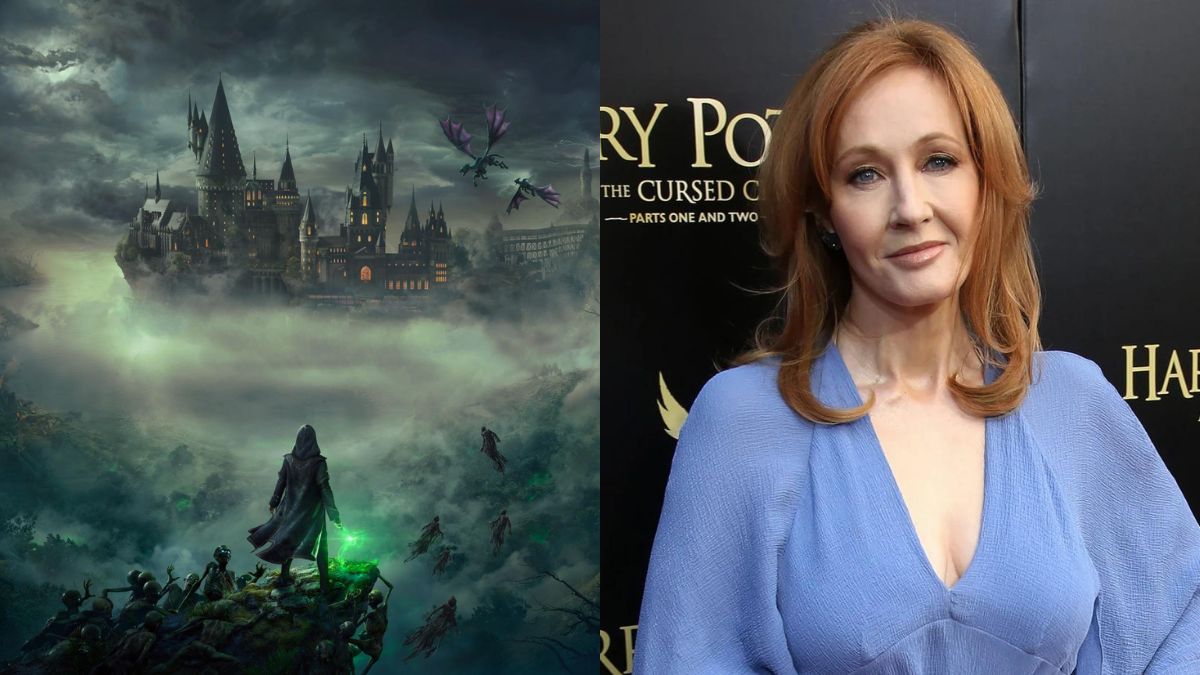Note: This post discusses issues of transphobia and anti-Semitism.
The release of Hogwarts Legacy on a variety of different gaming platforms had a huge impact on the gaming world; the game was a huge hit upon release, with millions of players flocking to experience Hogwarts for themselves. However, the game’s release has also caused a storm of reaction online, with former Harry Potter fans urging potential players to refrain from purchasing the game. nowhere, the controversy has actually been simmering for years, with the release of Hogwarts Legacy serving as the catalyst for a full boycott of the Potterverse “Wizard World” – and its author.
Related: Why is Hogwarts Legacy controversial? Explain
The controversial opinions of JK Rowling
Pictures via Avalanche Software and NBC
Much of the negative reaction to Hogwarts Legacy was caused by the creator of the Harry Potter series, JK Rowling. Since 2020, Rowling has repeatedly posted transphobic rhetoric to her Twitter audience of nearly 14 million, asserting her stance against transgender people. Rowling, who identifies as a “trans-exclusive radical feminist” (or TERF), has deliberately excluded transgender women from her ideals, calling them a threat to the well-being of “real” women. Rowling even posted a lengthy essay that goes into great detail about her thought process, showing how dedicated she is to perpetuating her oppressive views and how unlikely she is to apologize.
Rowling’s line of thinking is not only fundamentally wrong, but also dangerous. Labeling cisgender women as “real” women only serves to further isolate, fetishize and alienate transfeminine people, who already face exponentially higher rates of harassment and intolerance in society due to their identify. Excluding transfeminine people from the feminist conversation is inherently counterproductive, as transfeminine people of color are frequently the target of attacks rooted at the intersections of transphobia, racism, and misogyny. Rowling’s crusade against the transgender community has inspired other Twitter users to join her in perpetuating these harmful ideals, with the hashtag #EstoyConJKRowling hosting thousands of Tweets reinforcing Rowling’s views.
Related: 5 Games Developed by LGBTQ+ to Play Instead of Hogwarts Legacy
Due to Rowling’s continued disregard for the trans community, former Potterheads dropped out Harry Potter series, throwing in the towel on a franchise that was dear to them. LGBTQ+ people and their allies were even more frustrated when Hogwarts Legacy was announced, as the game would no doubt attract international attention and put more money in JK Rowling’s pocket as a result. LGBTQ+ groups and their allies have rallied online to boycott the new game, with some groups even releasing their own game packs to redirect gamers to LGBTQ+ media.
Recurring Anti-Semitic Themes in the Potterverse
Image via Warner Bros. Pictures
That said, transphobia isn’t the only issue Hogwarts Legacy boycotters have reported. One of the main points of contention in the original Harry Potter The series was the inclusion of the goblins as money-hungry bankers with long noses, which was recognized as an amalgamation of anti-Semitic stereotypes. While the devs had the opportunity to fix this glaring issue with the creation of Hogwarts Legacy, it appears they’ve gone two-step by including caricatures of Jewish people in the game’s main story.
One of the main plot points of Hogwarts Legacy is defeating Ranrok, a greedy goblin who is hunting a sacred artifact. The portrayal of the goblin as a villain, along with the strong historical parallels to the struggles endured by the Jewish people, only reinforced that the original goblins appearing in the Harry Potter franchise are no coincidence. Rowling’s continued use of anti-Semitic stereotypes in her storytelling has understandably angered Jewish fans, some of whom have joined the game’s boycott movement.
Related: Somehow the trend of Hogwarts Legacy spoilers involved Ant-Man and the Wasp
Welcome and success: why is a boycott important?
The combination of transphobia and anti-Semitism surrounding the release of Hogwarts Legacy has led large groups of people and even streamers to express their disinterest in purchasing the game. Critics say supporting the game indirectly encourages pursuit of these points. view and allows its creators, including JK Rowling, to profit from harmful rhetoric and caricatures of historically marginalized people. A streamer by the name of Veronica “Nikatine” Ripley caught the attention of many online media outlets when she tweeted her opposition to Hogwarts Legacy, and several other streamers followed suit.
Despite all the claims against JK Rowling and Hogwarts Legacy, the game received generally positive reviews, even though players know something is wrong. As a result, online media hailed the success of Hogwarts Legacy and reduced the boycott to a “failure”. Many fans who anticipated the game’s release dismissed the waves of controversy as mere “drama”, effectively closing an avenue for discussion of the harmful topics of the game. It has become common for those who oppose the boycott to use reductive language as a means of justifying their own decision to buy the game, but to label the boycotters as “provoked” or “hateful” shows just how little interest some people have in understanding how this heinous thing works. rhetoric affects others.
While it’s safe to say that Hogwarts Legacy isn’t going anywhere for the foreseeable future, it’s important for players to consider the cost of revisiting such a nostalgic franchise. Silencing critics of boycotters may be an easier way to enjoy new content, but silencing those conversations only further silences the voices that haven’t been heard in decades. The success of Hogwarts Legacy as well as its many controversies show that Hogwarts can be a magical escape for some, at the expense of harsh realities for others.
Source

